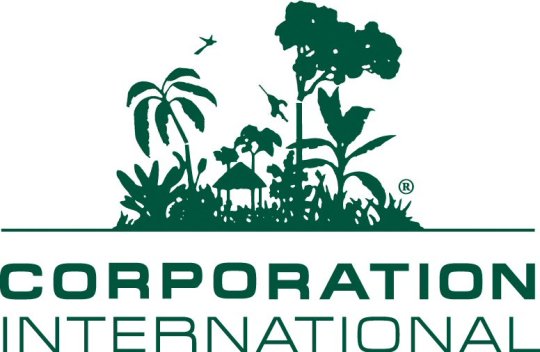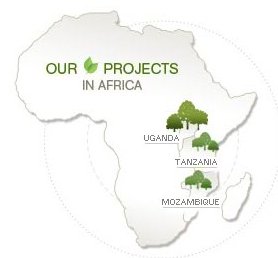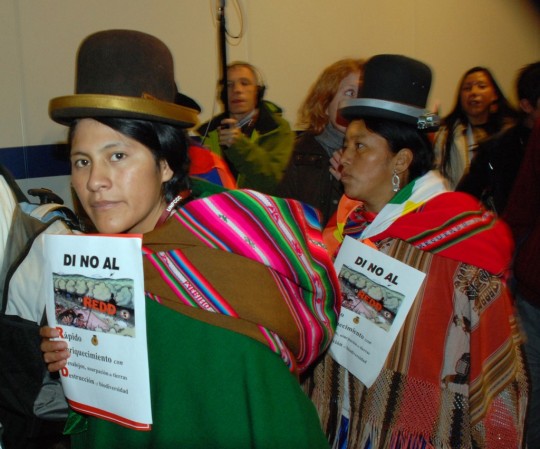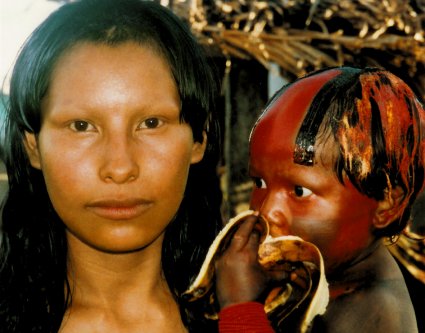Mar 27
20120
BRAZIL: MUNDURUKU CHIEF CLARIFIES REDD CONTRACT FARSE with Celestial Green Ventures
By human and natural rights activist, Rebecca Sommer
Source: Earth Peoples
March 27, 2012
It created waves of headlines around the world when the Munduruku, an Indigenous nation of approximately 13000 living in the state Para, Brazil, signed a carbon credit sales contract (REDD) with Celestial Green Ventures.But it wasn’t the community, that signed the contract.
I uncovered this fact during my 2 1/2 month visit in the state of Para where I was investigating the Belo Monte dam issue. Upon hearing the announcement, I called a human rights and climate justice colleague Marquinho Mora from the organization Faor, who informed me that the Munduruku community was indeed very confused about the news themselves.
Interestingly, at the same time I was able to get my hands on 3 REDD contracts signed between Indigenous nations in Altamira area, and an criminal individual, by the name Benedito Milenio Junior.
Yet Milenio did not sign on behalf of his company, he signed as an individual, with no references to the company he claimed to the indigenous chiefs he represented. →










